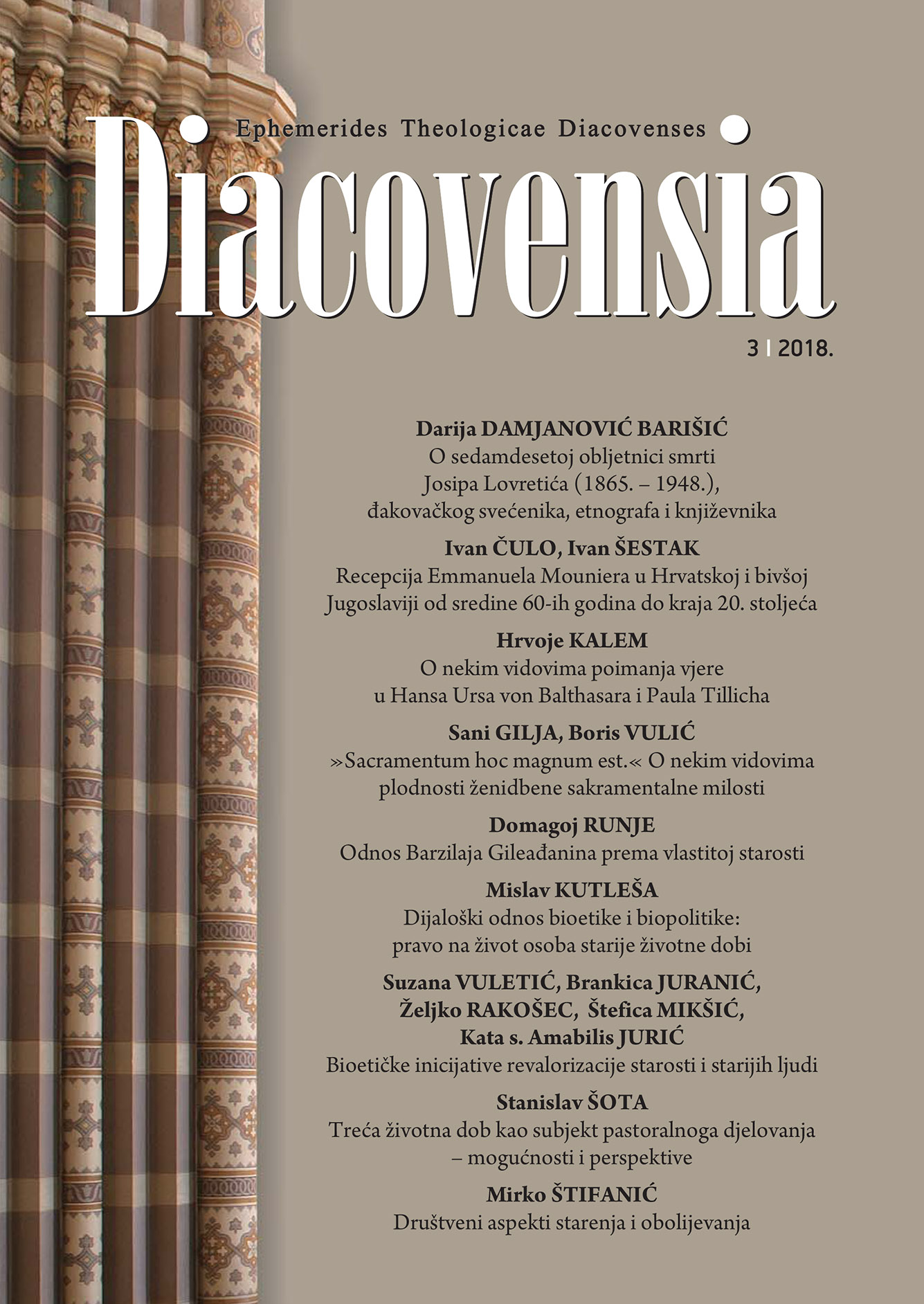Recepcija Emmanuela Mouniera u Hrvatskoj i bivšoj Jugoslaviji od sredine 60-ih godina do kraja 20. stoljeća
The Reception of Emmanuel Mounier in Croatia and the Former Yugoslavia From the Mid-60s to the end of the 20th Century
Author(s): Ivan Čulo, Ivan ŠestakSubject(s): Christian Theology and Religion, Philosophy, Existentialism, Marxism, Philosophy of Religion
Published by: Katolički bogoslovni fakultet u Đakovu
Keywords: Emmanuel Mounier; personalism; reception; Catholic thought; Marxism;
Summary/Abstract: The paper studies and analyzes the reception of the French Catholic philosopher and the initiator of personalism Emmanuel Mounier (1905-1950), in Croatia and the former Yugoslavia from the mid-sixties to the end of the 20th century. The paper examines articles on Mounier and his personalism, his works and the influence of some of his ideas. Since the mid-sixties, the personalism of Emmanuel Mounier, as well as personalism as a philosophical direction in general, has largely been perceived as an attempt to synthesize Marxism and existentialism, or as an addition to Marxism. Such an approach was particularly highlighted in the works of Franjo Zenko and Zagorka Pešić-Golubović. This gave personalism, particularly Mounier’s, certain legitimacy and a positive reflection within the then dominant, 'official' Marxist circle, but at the same time it became marginal and questionable to Christian thinkers. It is evident that Mounier's personalism was perceived apart from the rest of personalist 'milieu' (Jacques Maritain, Nikolai Berdyaev, Gabriel Marcel, Denis de Rougemont, and others), which was strongly opposed to Marxism and existentialism. This is also the case with personalist activism, regarding which there is mention only of the left-wing group around Mounier and the Esprit magazine, while the right-wing and national-oriented personalist groups were not mentioned at all. Catholic thinkers and those from emigration built a reserved stance, and from them there are no comprehensive or opinion articles on the subject. The author also attributes the questionable understanding of personalism, as well as the lesser acceptance of Mounier's work, to the fact that there is not a single translation of a Mounier’s work into Croatian language.
Journal: Diacovensia: teološki prilozi
- Issue Year: 26/2018
- Issue No: 3
- Page Range: 359-381
- Page Count: 23
- Language: Croatian

